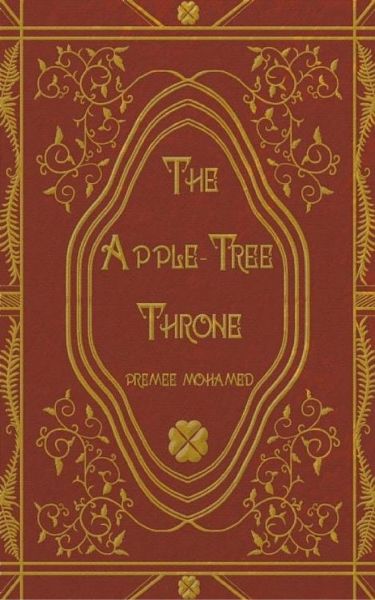Icy Hands Taking Hold of Me
The Apple-Tree Throne
By Premee Mohamed

18 Dec, 2019
Premee Mohamed’s 2018 novella, The Apple-Tree Throne, is an alternate-history fantasy.
Having served overseas in the army of the Greater Republic of Britannia, Lieutenant Braddock returns home with a debilitating leg injury. His commanding officer, Major-General Theodore Wickersley, returns in a coffin. Having been promoted far beyond his competence: the Major-General made egregious mistakes that led to his death.
If Wickersley had simply got himself killed through bold, stubborn ignorance, he might have been heroic. His refusal to believe official intelligence reports led to the deaths of most of the soldiers he commanded. The enemy permitted the handful of survivors to go their way once Wickersley himself was executed out of hand. The Republic can forgive officers who are imbeciles, but not officers who embarrass GRoB. Had he survived, Wickersley could have expected an early retirement and a cold shoulder at the club. As it is, he makes a convenient scapegoat (not least because he was actually the one at fault).
Braddock is the only subordinate soldier willing to speak at the funeral of the disgraced Wickersley. This charitable act is welcomed by the Wickersley clan. They are aware that Braddock has very limited means (the Republic is not keen on pensions) and offer him lodgings in a guesthouse on the family estate. It’s too good an offer to refuse.
The guesthouse was Wickersley’s home before he left on campaign. Braddock is soon on his way to replace Wickersley in the family circle. He also finds himself the target of the attractive Miss Meyers, who had matters gone differently might have been Mrs. Wickersley.
Braddock is reluctant to return her advances. He is even more reluctant when he finds himself haunted by the shade of the Major-General, who does not approve of Braddock stepping into his life. Every day, the spectre grows more adept at making his fury known…
~oOo~
The setting is one part alternate history (Britain is a republic, not a monarchy, and North America is apparently a hellish dystopia1) and one part fantasy (the presence of ghosts). Some might want to call this novel steampunk. But most of the steampunk I’ve read is thrilled with the trappings of empire or at least seemingly unaware that there are any downsides to imperialism2. Mohamed sidesteps the delights of steampunk — the darling hats! the flashy uniforms! the lavish estates! — by choosing a protagonist who was not born to the ruling classes. Braddock is lucky by the standards of his class, but it is luck tempered by surviving a pointless charge with a crippled leg. Even when he is practically adopted by the Wickersleys, he remains an outsider. We see his new environment through his keen and critical eye.
I liked the setting; I liked Braddock; I liked the author’s delightful prose. I’m quite keen to get my hands on her upcoming novel, Beneath the Rising.

Beneath the Rising is not due out until March 2020. Until then, enjoy this short sample of her work.
The Apple-Tree Throne is available here (Amazon US), (Amazon Canada), (Amazon UK). It does not appear to be available from either Book Depository or Chapters-Indigo. In the case of Chapters-Indigo, it is available from Kobo, so I don’t know why CI’s search didn’t turn it up3.
1: Or so I assume from the name Americanada, which promises unspeakable horrors.
2: See, for example, the Griffiths’ Vampire Empire series, where the imperialists of Europe are pushed out of Europe and exiled to their equatorial holdings. One might expect the imperialists to notice parallels between how they were treated by the vampires and how they themselves treat their subjects. Nope.
3: This is not the first time I have had trouble finding a book authored by a POC on the Chapters-Indigo site. That said, the culprit is almost certainly a somewhat crappy corporate search engine. It’s just that 40 percent of the books for which I search are by POC so a similarly high fractions of the searches that don’t work involve works by POC.
